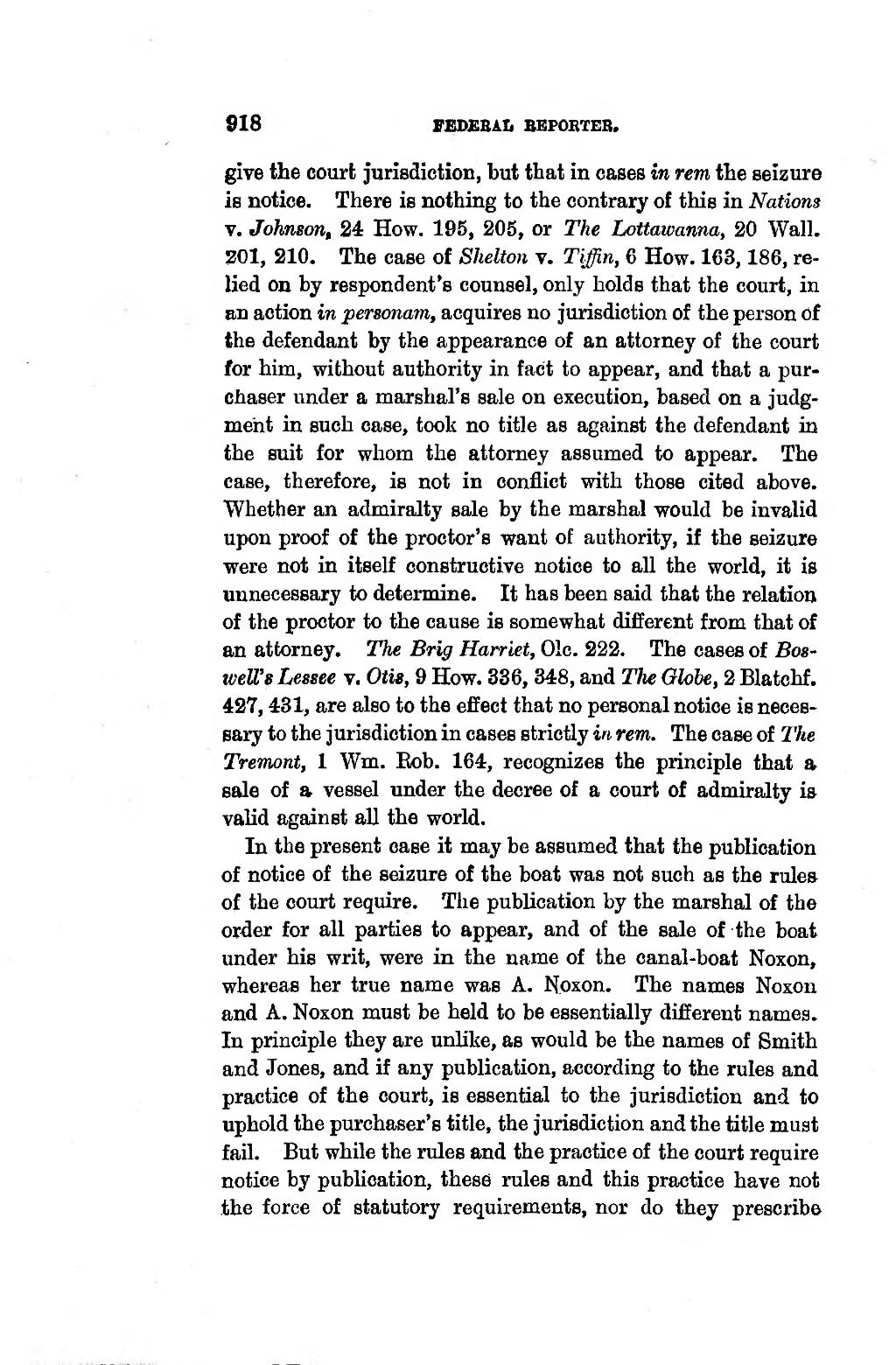918 fEDEBAIi BEPOBTEB. �give the court junsdiction, but that in cases in rem the seizure is notice. There is nothing to the contrary of this in Nations V. Johnson, 24 How. 195, 205, or The Lottawanna, 20 Wall. 201, 210. The case of Shelton v. Tiffin, 6 How. 163, 186, re- lied on by respondent's counsel, only holds that the court, in an action in personam, acquires no jurisdiction of the person of the defendant by the appearance of an attorney of the court for him, without authority in fact to appear, and that a pur- chaser under a marshal's sale on execution, based on a judg- meht in such case, took no title as against the defendant in the suit for whom the attorney assumed to appear. The case, therefore, is not in conflict with those cited above. Whether an admiralty sale by the marshal would be invalid upon proof of the proctor's want of authority, if the seizure were not in itself constructive notice to ail the world, it is unnecessary to determine. It has been said that the relation of the proctor to the cause is somewhat different from that of an attorney. The Brig Harriet, Ole. 222. The cases of Bos- well's Lessee v. Otis, 9 How. 336, 348, and The Globe, 2 Blatchf. 427, 431, are also to the effect that no personal notice is neces- eary to the jurisdiction in cases strictly in rem. The case of The Tremont, 1 Wm. Eob. 164, recognizes the principle that a sale of a vessel under the decree of a court of admiralty is valid against ail the world. �In the present case it may be assumed that the publication of notice of the seizure of the boat was not such as the rules of the court require. The publication by the marshal of the order for ail parties to appear, and of the sale of the boat under his writ, were in the name of the canal-boat Noxon, whereas her true name was A. Noxon. The names Noxon and A. Noxon must be held to be essentially different names. In principle they are unlike, as would be the names of Smith and Jones, and if any publication, according to the rules and praetice of the court, is essential to the jurisdiction and to uphold the purchaser's title, the jurisdiction and the title must fail. But while the rules and the praetice of the court require notice by publication, these rules and this praetice bave not the force of statutory requirements, nor do they prescribe ����
Page:Federal Reporter, 1st Series, Volume 3.djvu/925
This page needs to be proofread.
